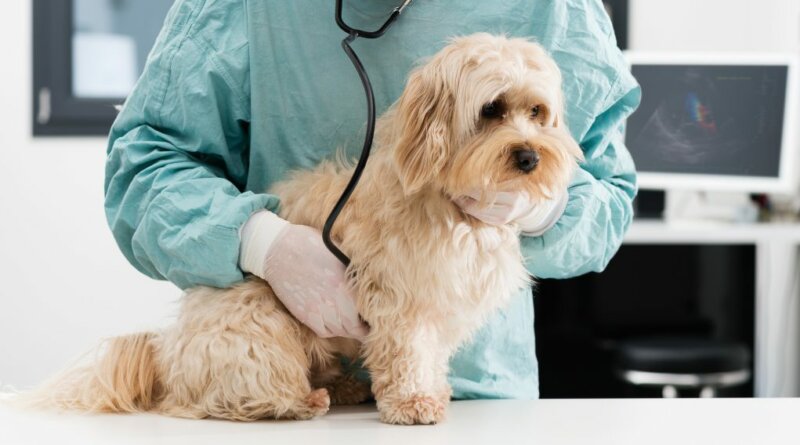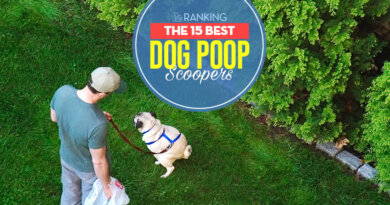What to Expect and Do
Have you noticed your older and seemingly healthy dogs not keeping up with your daily activities, unlike how he used to? Lately, you might have observed that they had been exhausted and fatigued.
Furthermore, you have also noted that they’ve been experiencing shortness of breath, persistent coughing, and lack of appetite. Could it be Congestive Heart Failure (CHF)?
What is it? What does that mean? It’s certainly an overwhelming diagnosis, but with a bit of research, you’ll soon figure out exactly what to expect.
It is a condition in dogs where their heart is failing to pump blood through the body effectively. It is due to several reasons and shown through different symptoms, and if left untreated, it might cause unexpected and sudden death.
There is more to learn about CHF, especially the difference between right-sided and left-sided CHF.
Interested? Read below to know more.
What is Congestive Heart Failure?
To start this off, congestive heart failure or disease is a condition where a dog’s heart experiences pressure overload. It is mainly the error of the heart muscle in pumping blood throughout the rest of the body.
There are two classifications of congestive heart failure, namely the right-sided and the left-sided heart failure.
Right-sided heart failure indicates that the right side of the heart cannot pump blood; thus, the fluid will back up into your dog’s abdomen. Consequently, the fluid buildup causes peripheral edema or swelling of the stomach, hands, and limbs.
On the other hand, left-sided heart failure indicates the inability of the left side of the heart to pump blood, causing pulmonary edema, a fluid buildup in the lungs.
The primary symptom of both classifications is a heart murmur or irregular beating within the heart.
What Causes Congestive Heart Failure in Dogs?
Congestive heart failure happens by a series of diseases or defects that deters a heart from doing what it does. One has to worry about it, significantly that it can affect a majority of your pup’s day-to-day activities.
Emphasized below are the five leading causes of congestive heart disease in dogs, namely:
1. Abnormal Blood Pressure
Abnormality in blood pressure, especially when stressed, causes the dog to have congestive heart failure. If this happens, the dog could have trouble breathing that might lead to a heart attack.
2. Faulty Heart Valves
Faulty Heart Valves happen when at least one of the main valves on your dog’s heart (right and left ventricle or atrium) doesn’t function correctly. It is either due to the valves not formed fully or not closing correctly.
3. Enlarged Heart
Heart enlargement in dogs, also known as dilated cardiomyopathy (DCM), causes your dog’s heart to contract irregularly. As a result, their heart becomes thinner and weaker.
4. Mitral Valve Prolapse
The Mitral valve is the valve between the left atrium and left ventricle. If this valve malfunctions, your dog is likely not to pump enough blood on its whole body.
The prolapse causes the body of the affected dog to tire out quickly or become out of breath.
5. Narrow Blood Vessels
Another cause of congestive heart disease is when the vessels narrow due to a blockage near or within their coronary arteries. It is due to the fatty deposits buildup within your dog’s blood vessel.
6. Inheritance
Your dog can also inherit the Congestive Heart Failure condition from their parents. This condition is prevalent among Toy Poodles, Pomeranians, and Cavalier King Charles Spaniel, among other breeds.
These breeds are said to be potentially more at stake than other breeds due to their size.
RELATED: Enlarged Heart in Dogs (Dilated Cardiomyopathy)
What are the Clinical Signs and Symptoms of Congestive Heart Failure in Dogs?
Although most dogs live long despite having Congenital Heart Disease, it takes strict monitoring about their medications, nutrition, and exercise to do this.
Listed below are the ten main symptoms of CHF in Dogs you need to look out for.
1. Coughing
Since your dog will experience heart murmurs while having CHF, there’s a possibility that they might experience hacking coughs.
If coughing becomes severe, contact your veterinarian.
If already diagnosed with congestive heart failure and on furosemide, your vet may recommend an additional dose to alleviate any extra accumulation of fluids. Oversee your dog, time coughing, and take notes for the next visit.
2. Difficulty Breathing
Also called pulmonary edema, breathing difficulty in dogs indicates fluid build-up in their lungs caused by exposure to toxic substances or trauma.
If this is the case, your vet may prescribe additional diuretics like furosemide. If the difficulty of breathing worsens, call your veterinarian immediately.
3. Difficulty Sleeping
Dogs may try to sleep on their chest instead of their sides due to the fluid buildup in their lungs because there’s a likelihood that they might feel uncomfortable due to pain within their abdomen and chest areas.
You may also observe your dog trying to sleep quietly while sitting up to avoid pressure and pain on their bodies.
They’re likely to wake up in the middle of the night and go to the nearest ventilation source so they can breathe.
If you think your dog’s becoming unhealthily restless, don’t hesitate to consult with your veterinarian. There’s a likelihood that there may be something that’s bothering your pup.
4. Fainting
Fainting is also one of the symptoms of CHF. It is due to the weakening of the heart muscles, leading to a heart attack if unmonitored.
If your dog faints, you should contact your veterinarian immediately to schedule an appointment.
Your vet can use a 24-hour Holter ECG monitor that will record your dog’s rhythms. It will help make for a more precise and accurate diagnosis.
5. Urinary Accidents
Diuretics, also called water pills, are a type of medicine that controls high blood pressure to improve blood flow within the heart.
It is commonly administered to dogs, especially those who have a heart failure condition.
However, this medicine can cause urinary accidents because it aims to remove water and sodium in the body. Although it’s normal to have urinary accidents, immediately bring them to the vet if it comes to the point that it concerns.
6. Swollen Belly
This symptom happens due to excess fluid buildup within the abdominal region, making the pup swollen and puffy. It results from peripheral edema, caused mainly by right-sided CHF.
It’s typically relieved by the reduction of the fluid from the chest or abdomen. If there are concerns regarding pain experienced by your pup, you may immediately proceed to the vet or any animal hospital around you.
7. Lack of Appetite Due to Fatigue and Exhaustion
Due to fatigue and exhaustion, your dog might also avoid eating or drinking. In this case, most experts suggest resorting to hand-feeding to retain nutrients and avoid other complications.
8. Inability to Exercise
Because CHF attacks not only the heart but also your dog’s lungs, there’s a likelihood that they wouldn’t want to exercise. Not only that, but they might also want to avoid any activities that involve breathing endurance.
9. Pale or Blue Mouth and Tongue
Blue mouth and tongue, also known as cyanosis, are signs of inadequate oxygen circulation around the body, which we cannot see in healthy dogs. Oxygen therapy may be a requirement for treatment for dogs with low oxygen levels.
Before you plan on proceeding with oxygen therapy, ask your veterinarian about what you may have to do.
10. Medication Side Effects
Several medications that treat congestive heart failure may cause vomiting and loss of appetite. If these symptoms are new to you, call your vet to discuss any needed adjustments in treatment.
How is Congestive Heart Failure Diagnosed?
To diagnose Congestive Heart Failure during a physical examination, the veterinarian will mainly locate the loud heart murmur through a stethoscope. However, they may also perform other tests for:
- Subaortic Stenosis (SAS)
- Tetralogy of Fallot
- Ventricular Septal Defects (VSD)
- Persistent Ductus Arteriosis (PDA)
- Dilated Cardiomyopathy
- Pulmonary Edema
- Mitral Valve Insufficiency
- Peripheral Edema
- Patent Ductus Arteriosus
- Biventricular Failure; and
- Leaky Valve Disease.
For dogs with severe congestive heart failure diagnosed with one of these congenital heart defects, veterinarians suggest that they be spayed or neutered to prevent spreading the defect within the breed population.
What Are Treatment Options?
Depending on your dog’s particular diagnosis, you have different options you can take when it comes to their treatment.
The most common treatments for congestive heart failure in dogs available are:
- Oxygen therapy
- Medications
- Heart monitoring
- Blood volume and pressure monitoring
- Symptomatic support and care
- Removal of excess fluid from the chest (thoracocentesis) or abdomen (abdominocentesis) to reduce fluid buildup.
With quality and proper medication, many dogs do well in their treatment. Focus on good care and prescribed veterinary medicine; to help your pup improve their health.
Conclusion
Heart disease is no joke, especially if it’s congestive heart failure. The mere fact that an illness like this may overall impact a seemingly healthy dog can be concerning and dangerous.
With this in mind, you must take care of and monitor your dog for possible shifts and changes within their health. Help your pup live a long and meaningful life so you’ll bond and play more with them.
READ NEXT: Taking A Very Close Look At Causes of Heartworm In Dogs
Related

























This design is spectacular! You definitely know how to keep a reader entertained. Between your wit and your videos, I was almost moved to start my own blog (well, almost…HaHa!) Excellent job. I really enjoyed what you had to say, and more than that, how you presented it. Too cool!